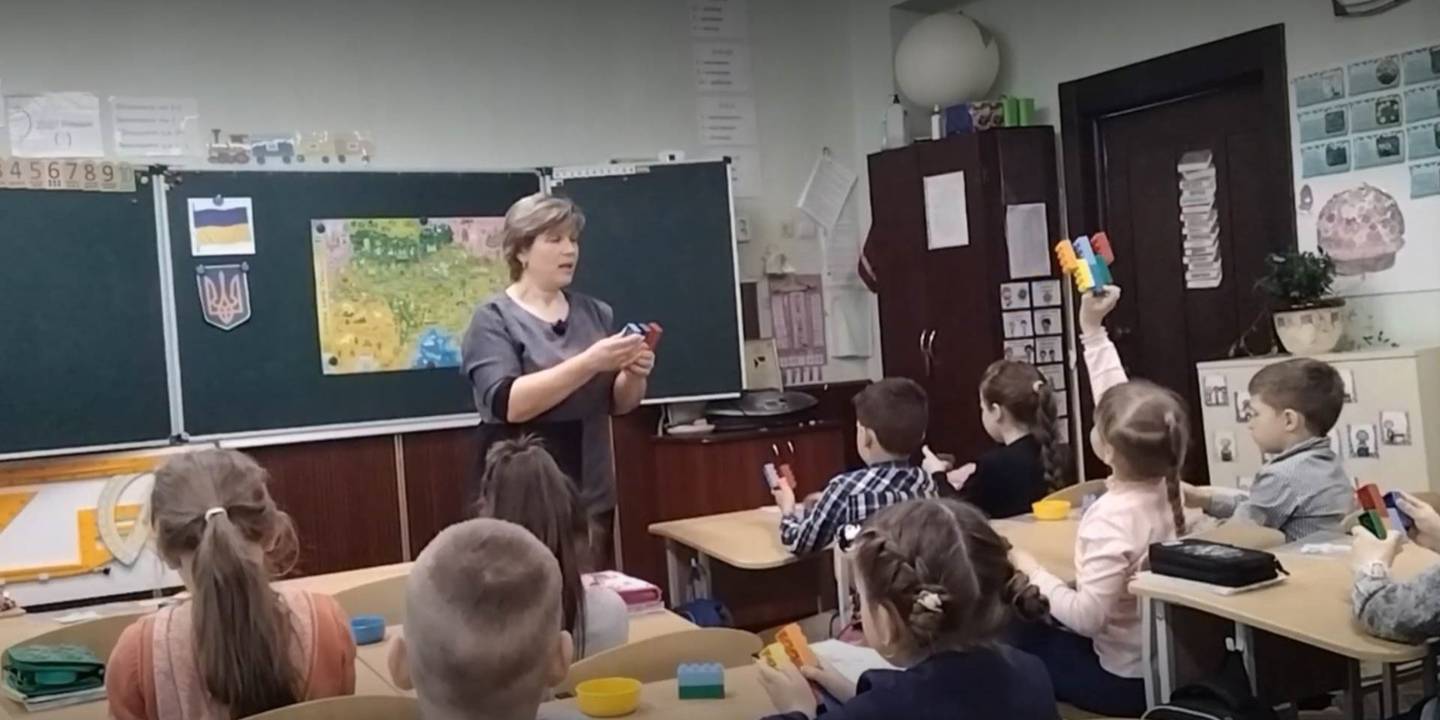
Playful learning helps student growth in times of crisis
ACER news 10 Jun 2024 7 minute readUkrainian primary school teachers using learning-through-play methods have observed greater growth in their students’ literacy and social-emotional skills compared to other teachers’ students.
Children around the world have experienced significant disruption to their education in recent years, particularly children in Ukraine.
Play is internationally recognised as critical in helping children develop the cognitive, physical, creative, social and emotional skills they need to thrive.
Now, our 4-year Learning Through Play at School Research Study suggests that playful learning is also a protective factor for children, fostering their literacy and social-emotional skills growth during times of crisis.
More than 50 researchers contributed to this groundbreaking work – led by the Australian Council for Educational Research (ACER) and the LEGO Foundation, with support from the Ukrainian Educational Research Association (UERA)
Results of the study are now being considered by the Ministry of Education and Science Ukraine. They provide evidence of what can happen when teachers are supported with opportunities to introduce new practices, and time to reflect on their impact.
As one teacher said: ‘Especially nowadays when children’s emotional state is not very balanced, [Learning Through Play] allows us not only to learn but also to balance the child’s emotional state, which is very important.’
What the study involved
Learning Through Play at School arose from a global scoping study conducted by ACER and the LEGO Foundation in 2018. The study found that effective learning through play in primary school is characterised as holistic learning experiences that are meaningful, iterative, joyful, socially interactive and actively engaging.
The subsequent research study conducted in Ukraine from 2019 to 2024 involved 30 teachers and 1,500 students from primary schools in 5 provinces of Ukraine. It compared results for an intervention group that took part in the 2-year professional learning program and a control group.
Intervention teachers completed interactive online modules on the Learning Through Play approach based on LEGO Foundation’s definitions for play and learning, and worked with experienced coaches.
They learnt how playful pedagogies enabled teachers to meet curriculum expectations and measure impact. They also developed their skills in collaborative, problem-based and social-emotional learning and how to support student agency.
As the children moved from grades 1 to 3, they were assessed on their expressive oral language, listening comprehension, empathy, self-awareness, self-regulation, problem-solving and conflict resolution.
Using a rubric, assessors scored each child individually as they interacted with playful items and scenarios.
Key findings
Despite the educational challenges posed by the COVID-19 pandemic and the war in Ukraine, most students still experienced learning growth over the study period.
The control group – which had a lower proportion of disadvantaged students than the intervention group (25% compared to 44%) – had a higher average score in all assessments. However, we measured greater growth among students in the intervention group.
The average literacy score in the control group grew by 8.86 points by the end of grade 3. In the intervention group, it grew by 10.29 points.
Similar results were found in measuring social-emotional skills; the average score increase was 10.72 points in the control group and 12.26 points in the intervention group.
This occurred despite the extra demands that supporting students with limited language experience or disability would have placed on their teachers.
While the number of participants involved at the end of the study was lower than at commencement due to the war, seeing greater growth in those students trialling the playful learning approach was encouraging.
Changes in teaching practice
Ninety classroom videos were recorded showing changes in practice over time among teachers who took part in the 2-year professional learning program.
Over time, more teachers in the intervention group considered playful learning a new way of thinking about education and saw children as more capable of problem solving.
Feedback captured surprise and joy in how students were responding.
‘They considered themselves architects … dreaming, fantasising, drawing, making, and it was very interesting,’ one teacher said of an exercise on designing the perfect school.
Another commented on the how the study had fostered self-directed learning.
‘Before there was no such thing; the children weren’t involved. Before, they just retold the information, and that was it …. Now, it’s inspiring.’
Another teacher was excited by peer learning.
‘They … started discussing among themselves. ... They cooperated, they organised, and for 20 minutes I sat there with my mouth open and watched.’
Where to now
The study provides evidence on the impact of Learning Through Play for other school systems to consider.
Researchers are now able to describe at different skill levels the knowledge, beliefs and practices a teacher would need to successfully facilitate playful learning.
That gives us a roadmap to show how playful learning has a valuable place in the primary school classroom.
Learn more
Read the full reports
Learning Through Play at School Ukraine: Final Research Report by Rachel Parker, Amy Berry, Kellie Picker, David Jeffries, Prue Anderson and Oksana Zabolotna
(This report is also available in Ukrainian)
Learning Through Play at School Ukraine, 2019-2024 (summary report) by Rachel Parker, Amy Berry, Kellie Picker, David Jeffries, Prue Anderson and Oksana Zabolotna
Visit the LEGO Foundation to download the Learning Through Play report by Rachel Parker and Dr Bo Stjerne Thomsen.
For more information about tools and frameworks for learning through play at school please contact Rachel.Parker@acer.org, Amy.Berry@acer.org, or Kellie.Picker@acer.org.